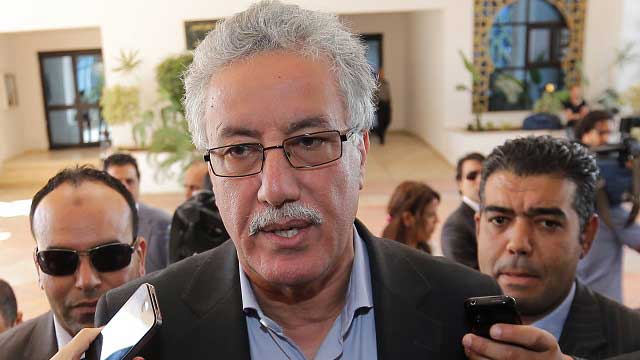SUMMARY
This is AI generated summarization, which may have errors. For context, always refer to the full article.

TUNIS, Tunisia – There was no end in sight Tuesday, November 5, to Tunisia’s months-long political crisis after ruling Islamists and the opposition failed to agree on an independent premier following two missed deadlines.
The birthplace of the Arab Spring has been mired in political stalemate following the assassination of two prominent opposition leaders by suspected jihadists earlier this year.
The opposition has accused the ruling Ennahda, a moderate Islamist party, of having failed to rein in extremists long-suppressed by former strongman Zine El Abidine Ben Ali as the country has been rattled by a string of attacks mainly targeting security forces.
Ennahda and the opposition opened hard-won talks on October 25 to form a government of independents, draft a much-delayed constitution and prepare for elections as part of a roadmap with a tight timetable.
But on Monday, November 4, mediators from the powerful UGTT union confederation said the dialogue had been suspended after the two sides failed to agree on a new prime minister.
“If the parties cannot reach a consensus, we will assume our responsibility and present the names of people we believe are capable,” UGTT head Houcine Abassi said.
However, any candidate would require the support of Ennahda and its allies, who won a majority in parliament in the first elections held after Ben Ali’s fall.
The two frontrunners were opposition-backed 79-year-old Mohamed Ennaceur, and Ahmed Mestiri, an 88-year-old supported by Ennahda and its allies.
Both are well respected and served under the late Habib Bourguiba, who led the fight for Tunisia’s independence and served as its first president for three decades from 1957.
But the opposition said Mestiri was too old and would be a puppet in the hands of Ennahda, which refused to budge.
“We don’t see any reason to refuse the choice of Mr Mestiri,” Ennahda chief Rached Ghannouchi told Mosaique FM radio.
“It is the duty of the Troika (the ruling coalition) to cede power only to a person known for his independence.”
He went on to say that the national dialogue “will resume sooner or later, because the country desperately needs it.”
The opposition blamed the failure of the dialogue on the ruling coalition, saying it had rejected several candidates.
“They are looking for any means to stay in power,” said Hamma Hammami, a representative of the National Salvation Front coalition.
The opposition has demanded a new government of independents, accusing the current line-up of failing to combat jihadists after the assassination of MPs Chokri Belaid in February and Mohamed Brahmi in July.
A crisis of ‘partisan interests’
On Tuesday the press lamented the failure to reach an agreement, saying both sides were to blame.
“The talks have revealed another crisis, in addition to the political, economic and social crises… It is the crisis of the domination of partisan interests to the detriment of the national interest,” the Arabic-language Assabah newspaper said.
French-language La Temps said the failure of the talks was “inevitable,” as the two sides had “hardened their respective positions.”
After months of stalling, Ennahda had opened talks with the opposition in line with the roadmap, and Prime Minister Ali Larayedh has said he will step down as long as the timetable is respected.
The gridlock has been accompanied by a rise in violence.
Last week there were two botched suicide bombings at tourist sites – in which the only casualty was one of the attackers – and nine police were killed in October.
The government has condemned the violence and linked Tunisia’s armed jihadists to Al-Qaeda in the Islamic Maghreb (AQIM), but says it lacks the resources to combat them.
On Sunday, November 3, the presidency ordered an eight-month extension of a state of emergency, which has been renewed repeatedly. – Rappler.com
Add a comment
How does this make you feel?
There are no comments yet. Add your comment to start the conversation.